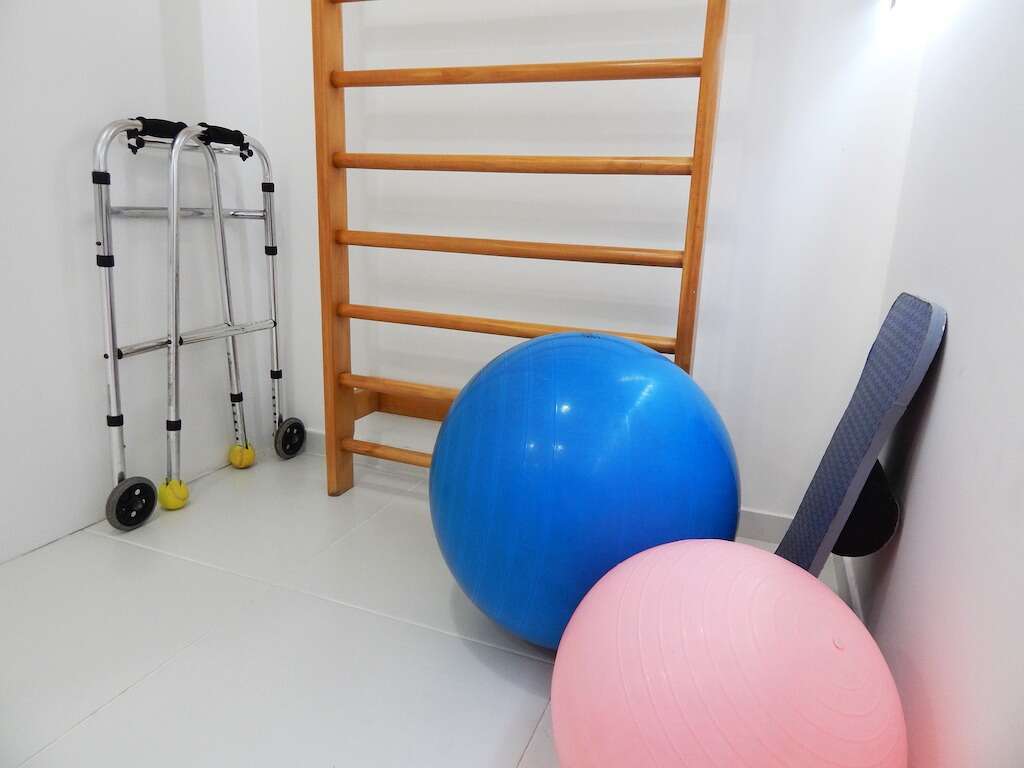10 Causes of Lightheadedness
Lightheadedness is a term used to describe the sensation of being close to loss of consciousness or fainting. Many individuals even say that it feels as though their head is weightless. Conversely, other people use it to describe a sensation of dizziness or as if their surroundings are “spinning”. Although it can be hard to tell the difference between both, note that dizziness is not the same as lightheadedness. Additionally, the causes of dizziness can be very different from those of lightheadedness. Describing the sensation adequately can help your doctor move forward with an accurate diagnosis.
Lightheadedness is a common complaint among the elderly. Usually, it is not caused by life-threatening conditions and it often improves fast. However, it must not be ignored because it can lead to falls or injuries in these patients. In rare cases, the cause can be serious. Thus, even if you or a person you know experience a brief episode of lightheadedness, it must always be reported to a health care provider. Here are 10 Causes of Lightheadedness.

1. Dehydration
Fluids make up almost two-thirds of the normal human body. Dehydration happens when the body loses or uses more fluids than what it takes in. In consequence, the cells of our body can’t carry out their normal functions. Additionally, it can change the balance of electrolytes (i.e. salts, potassium) in the body, which can cause several complications. Common causes of dehydration include low water intake, diarrhea, vomiting, profuse sweating, fever, and excessive urination.
When a person is dehydrated, no matter the cause, the volume of their blood decreases. Consequently, their blood pressure can drop, impairing the blood supply to important organs like the brain. When the brain does not receive enough oxygen, lightheadedness can occur. Other signs or symptoms of dehydration in adults include extreme thirst, darker urine, decreased urination, and confusion.

2. Hypoglycemia
Hypoglycemia refers to a decrease in blood sugar (glucose) to levels where related signs or symptoms appear. This threshold varies greatly from person to person, but it is generally at a fasting blood sugar of <50 mg/dl. There are many causes of hypoglycemia, but it is most often seen in people with diabetes.
Recall that the body uses glucose as its main energy source. Hence, if it falls below a person’s normal levels, every system in their body starts to use glucose reserves (i.e. glycogen) to function. However, the brain needs a constant supply of glucose to function properly. If the brain is not properly fueled, symptoms of hypoglycemia can appear. Signs and symptoms of hypoglycemia include lightheadedness, dizziness, confusion, blurred vision, sweating, increased heart rate, among others.

3. Migraines
Migraines are strong recurrent headaches that usually only affect one side of the head. A person with migraine usually experiences severe throbbing pain or a pulsatile sensation in the head, that can even intensify with movement. Curiously, migraines are more common in women than in men, and they may have a genetic component. Furthermore, migraines can present with an array of visual or sensory symptoms that arise before the pain, known collectively as aura.
Aside from aura, migraine attacks commonly present with symptoms such as light-headedness, nausea, vomiting, anorexia, and oversensitivity to light and/or sound. Fortunately, medications and lifestyle changes can help prevent migraines or even make them less painful.

4. Side Effects of Drugs
Medications are usually prescribed by a medical professional to manage and/or treat medical conditions. However, in some cases, drugs can produce unwanted signs and symptoms. Usually, the solution can be as simple as asking your doctor for a dose adjustment or trying a different medication.
Medications that can cause lightheadedness are especially those that work (perhaps too well) to lower blood pressure and treat certain heart conditions. A good example of this is diuretics. Other drugs that can cause lightheadedness are those used to treat anxiety disorders, mood disorders (depression), and cancer (chemotherapy). If you think that a certain prescription medicine may be the cause of lightheadedness, inform your healthcare provider.

5. Heart Conditions
In older adults, lightheadedness may be a sign of a life-threatening heart condition. It can be a symptom of a heart rhythm problem (arrhythmia), or even a heart attack. Arrhythmias can produce lightheadedness because, temporarily, the heart losses its ability to pump blood effectively, especially during very fast or slow heart rates. This decreases blood pressure and reduces the amount of blood that reaches the brain. Other symptoms of arrhythmias include palpitations, shortness of breath, and fainting.
Similarly, heart attacks (myocardial infarction) can also cause lightheadedness. This occurs because the pumping ability of the heart is also impaired, due to damage to the heart muscle. Other symptoms of myocardial infarction include chest pain, nausea, arm pain, jaw pain, and shortness of breath.

6. Strokes and Transient Ischemic Attacks
A transient ischemic attack (TIA) or a “mini-stroke” is an episode of neurological symptoms, that is caused by a temporary cessation or reduction in the blood flow to a part of the brain. Usually, since blood flow is reestablished briefly on its own, symptoms only last a short time (<24 hours). Theoretically, in TIAs there is no permanent tissue damage that can cause disabilities. On the other hand, strokes involve a longer duration of blood flow obstruction, and they are associated with the death of the affected tissue and permanent damage. Hence, stroke symptoms can be severe and have a longer duration (>24 hours).
Importantly stokes are usually caused by a blood clot that blocks an artery that leads to the brain (ischemic stroke) or when a blood vessel in the brain ruptures and damages surrounding cells (hemorrhagic stroke). Conversely, TIAs begin just like an ischemic stroke but resolve promptly. Both TIAs and strokes can cause lightheadedness, along with alterations in speech, behavior, vision, memory, and movement. This happens because without oxygen the affected part of the brain starts to die and the functions controlled by its brain cells become impaired.

7. High Altitudes
Travelers that ascend to high elevations may experience breathtaking views, literally. Acute mountain sickness is a medical condition that may cause uncomfortable symptoms, including lightheadedness. It turns out that oxygen levels fall steadily at increasing altitudes and the barometric pressure of the air is lower. Both of these conditions, make it harder (less efficient) for your lungs to take in oxygen. In response to low oxygen in the blood, the body stimulates hyperventilation or deep and fast breathing. This increases the blood’s pH by causing a decrease in the normal amount of CO2 in the blood (hypocapnia).
Hyperventilation can lead to metabolic disturbances, such as respiratory alkalosis, which causes the main signs and symptoms of altitude sickness. These include lightheadedness, shortness of breath, headache, an increased heart rate, among others. Thankfully, most people can adapt through a process known as acclimatization that involves the kidneys and the bone marrow.

8. Panic Disorder
Panic disorder is a well-defined psychiatric condition that involves the sudden onset (panic-attacks) of intense discomfort and a fear of dying or losing control, without any real danger or cause. Signs and symptoms of this condition include palpitations, lightheadedness, increased heart rate, shortness of breath, sweating, shaking, abdominal pain, and nausea.
During panic attacks, people are prone to hyperventilate or breathe deeper and faster. This causes an increase in the levels of carbon dioxide in the blood (hypocapnia), which, in turn, leads to metabolic disturbances. For example, respiratory alkalosis (an increase in blood pH) can occur as a consequence of hyperventilation in panic attacks and cause lightheadedness (among other symptoms).

9. Anemia
Anemia is a medical condition that can be defined as a reduction in the total number of circulating red blood cells. Recall, that red blood cells are in charge of transporting oxygen to the tissues, and they carry it within a molecule known as hemoglobin. There are many causes of anemia, but the most common one is caused by a shortage of iron in the body (iron-deficiency anemia).
As previously mentioned, the brain needs oxygen to function properly. Lightheadedness can be a symptom of anemia because as red blood cells decrease so does the delivery of oxygen to the brain. Other signs or symptoms of anemia include weakness, fatigue, pallor (pale skin), and shortness of breath.

10. Blood Loss
A normal healthy adult will have up to 1.5 gallons of blood in their body. Thus, important blood loss has to occur to produce signs and symptoms. Specifically, the first serious symptoms can start to appear with a blood loss of 30%-40% of total blood volume. Blood loss commonly occurs through bleeding, which can be internal and external. Causes of internal bleeding include trauma, gastrointestinal conditions (i.e. esophageal varices, peptic ulcer disease, cancer), infections (i.e. viral hemorrhagic fevers), and hematologic diseases. On the other hand, trauma is the most common cause of external blood loss.
Blood loss can cause a decrease in total blood volume, also known as hypovolemia. Consequently, blood pressure can drop, impairing the blood supply to important organs like the brain. Lightheadedness is one of the symptoms that occurs when the brain does not receive enough oxygen.












